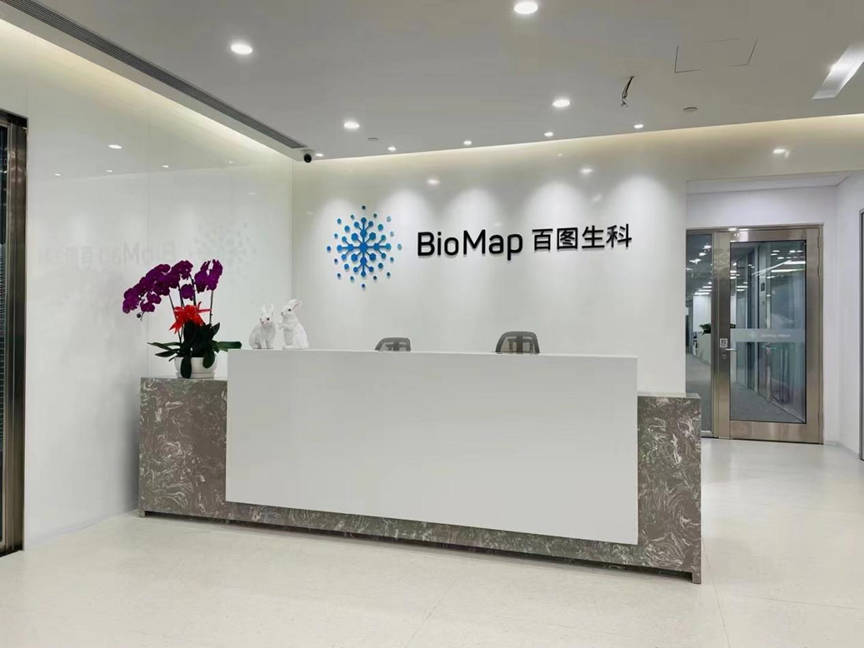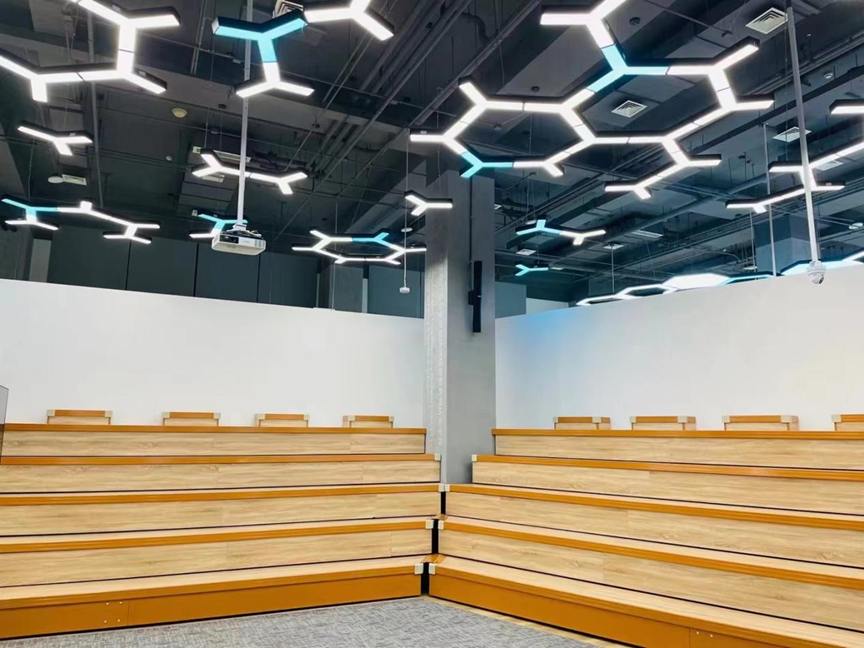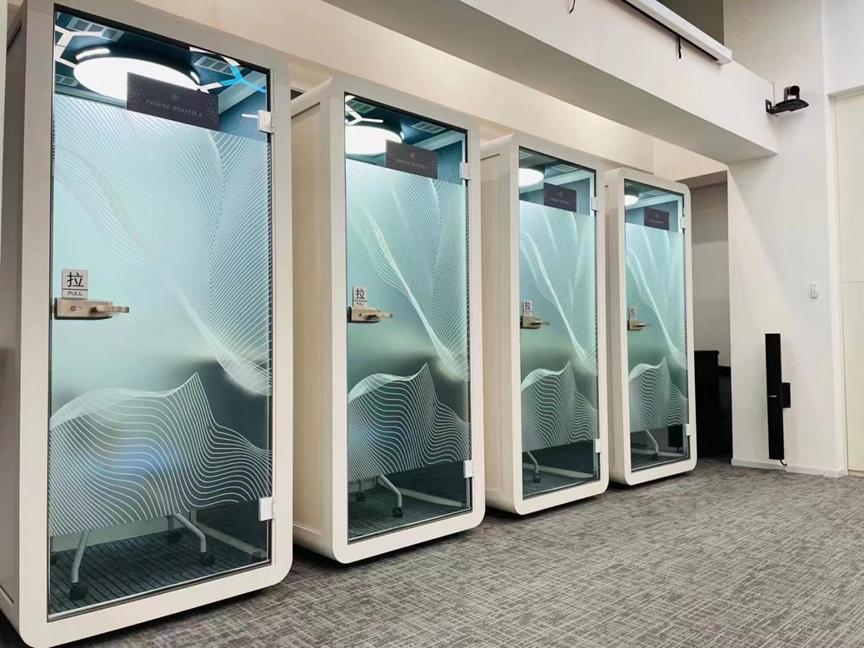DatawhaleShare
Recommended by: Xiaosi, Datawhale member
Company Profile
BioMap is an AI-driven life science research and development platform, founded by Baidu founder Robin Li in 2020.

The company is committed to combining cutting-edge AI and biotechnology, building a high-throughput dry-wet closed-loop biological computing engine, modeling the complex laws of proteins/immune cells/immune systems, and realizing specific Biological functions, and solve pain points in the life science industry, such as target discovery, drug design, de novo design and optimization of enzymes, etc., so as to improve human health and achieve sustainable development.
job description
1. Senior algorithm engineer
Job Responsibilities
Responsible for designing geometric deep learning algorithms and applying them in protein structure design
Follow up the latest developments in the field, be able to complete the reproduction and in-depth understanding of articles, and propose innovative solutions
job requirements
Master's degree or above in computer, machine learning, statistics related fields
Those who have published papers related to machine learning in top international conferences or journals are preferred
In-depth participation or establishment of influential open source projects on platforms such as GitHub
Familiar with equivariant graph neural network, large-scale pre-training model, generative model and other algorithms
Have good interdisciplinary communication skills and teamwork spirit
Have more than 5 years of industrial experience
Salary range: interview rating
Delivery method: [email protected]
2. Senior CADD engineer
Job Responsibilities
Using conventional molecular simulation tools and the company's self-developed computational chemistry and artificial intelligence methods to provide support for drug design projects;
Collaborate with experimental experts in medicinal chemistry and pharmacokinetics to provide support including data interpretation, SAR analysis, etc.
Can support multiple new drug research and development projects, and work with relevant internal and external teams to formulate and optimize computational simulation strategies for the projects.
Track new developments and developments in the field of computer-aided drug design and evaluate accordingly.
Ability to develop and improve existing software.
job requirements
Ph.D. in Computational Chemistry, Biophysics or related fields;
3-5 years and above work experience is preferred, with extensive experience in structure-based macromolecular modeling;
Postdoctoral research and/or relevant experience in the commercial sector in one of the following areas: antibody, enzyme or peptide modeling; protein docking; protein structure prediction; molecular dynamics simulations;
Excellent English skills will be considered a plus;
Experience in the following areas is a plus: -Enhanced Sampling Kinetics/Free Energy Calculations -Computational Macromolecular Drug Design -Python Programming
3. Deep learning algorithm engineer (target discovery direction)
Job Responsibilities
Design deep learning algorithms to integrate relevant data and features such as genome, transcriptomics, and gene regulatory networks, and build and optimize drug target discovery related algorithm processes and methods;
Combined with business needs, develop deep learning and graph neural network related large models to solve practical problems in drug target discovery;
job requirements
Machine learning, deep learning, computer, automation, bioinformatics and other related majors, graduate degree or above;
Have relevant algorithm project experience such as single-cell data-related algorithms or graph neural network models, can independently design deep learning algorithms to integrate multiple types of data, optimize algorithm models, and have 1 year or more of related work experience;
Proficient in Python programming language and deep learning frameworks such as Pytorch, with good coding ability, experience in Transformer, Pytorch Geometric or dgl is preferred;
Have rich research results, and those who publish related papers in AI top conferences, journals or Kaggle/KDD/CVPR competitions are preferred;
4. Pre-train large model engineers
Job Responsibilities
Participate in the R&D and optimization of protein or NLP large language model pre-training, including the implementation, improvement, and tuning of pre-training large-scale model solutions;
Perform fine-tuning for tasks in the downstream biological field, including complex proteins, complex folding, protein stability, etc., and run out of SOTA level;
Maintain hundreds of billions of language models for continuous training and fine-tuning, to deal with the computational instability problems of super-large-scale language models, and to ensure computing efficiency and utilization of computing resources;
Analyze, organize and optimize the pre-trained large model training/evaluation data;
job requirements
Familiar with various generative and comprehensible language model architectures, deeply understand Transformer and other variants and operators, and be able to improve them and optimize the model health;
Familiar with downstream and evaluation tasks in NLP, CV, and biological computing, have a certain understanding of task and model capabilities, and be able to use large models to optimize tasks;
Those who have trained tens of billions of dense Transformer models on the Kcal cluster are preferred;
Familiar with one or more of the following technical frameworks or models is preferred: GLM, Megatron, DeepSpeed, ESM2, PEFT, OpenFold;
Those with top experience in natural language processing or machine learning (ACL, EMNLP, NAACL, ICML, NeurIPS, ICLR) or rich ranking experience are preferred;
Those who have both large model task tuning experience and large model HPC experience are preferred;
5. Protein structure algorithm engineer
Job Responsibilities
Follow up the latest developments in the field, complete the debugging of open source models, and reproduce key data and charts
Develop machine learning algorithms to complete protein structure prediction and protein design tasks
Optimize the existing structure prediction algorithm and build a protein modeling engine
Output technical documents, conduct cross-departmental communication, and assist in engineering optimization
job requirements
Proficient coding ability, able to independently complete algorithm development, testing and other tasks
Experience in using or evaluating machine/deep learning methods applied to protein prediction tasks, such as: AlphaFold, RoseTTAFold, RFDiffusion
Strong understanding of protein biochemistry or biophysics related to protein structure/function
Proficient in methods and tools for querying and analyzing large datasets of protein sequence and protein structure data
Familiar with at least one programming language: Python, C++; familiar with deep learning frameworks such as pytorch, tensorflow
Experience in participating in protein structure prediction competitions such as CASP is preferred
Experience in protein structure analysis, cryo-electron microscopy, crystal diffraction, NMR, etc. is preferred
Excellent literature reading and problem-solving skills, strong self-motivation, and excellent teamwork skills
6. Geometric Deep Learning Algorithm Engineer
Job Responsibilities
Develop Geometric Deep Learning algorithm to learn representations of protein structures and epitopes;
Participate in the research and development of Protein Folding, Docking, and De Novo Design projects;
job requirements
Machine learning, natural language processing, computer vision, mathematics and other related majors, bachelor degree or above;
Proficient in Geometric Deep Learning and classic graph neural network algorithms;
Can reproduce the AI SOTA algorithm, and have relevant project experience in developing new algorithms that surpass SOTA;
Proficient in at least one deep learning framework such as Tensorflow, Pytorch, etc., excellent programming ability;
Winners of AI Summit or Kaggle/KDD/CVPR competitions are preferred;
7. Inference Engine R&D Engineer
Job Responsibilities
Responsible for building a model reasoning engine, supporting multi-model reasoning, and supporting distributed reasoning capabilities for super-large models;
Responsible for optimizing model inference performance, combining model compression, graph optimization and operator optimization technologies to break through performance bottlenecks.
job requirements
Proficient in Linux C++ programming development, experience in Python development, familiar with common design models;
Familiar with one of the mainstream deep learning frameworks, such as TensorFlow/Pytorch, etc.;
Experience in developing and using Triton server/TF Serving is preferred;
Experience in developing and using mainstream inference engines is preferred, such as ONNXRuntime/TensorRT/OpenVINO;
Experience in model compression (quantization/pruning/distillation) and compilation optimization is preferred.
8. Distributed Training R&D Engineer
Job Responsibilities
Responsible for distributed training optimization, operator optimization, and communication optimization of super-large models such as AlphaFold2/Transformer;
Responsible for building distributed reasoning capabilities for super-large models, using reasoning optimization technology to break through reasoning performance bottlenecks;
Explore cutting-edge AI engineering optimization technologies, accumulate and innovate core technical capabilities;
job requirements
Proficient in Linux system c++/python language development, familiar with commonly used design patterns;
Familiar with at least one mainstream deep learning framework, such as TensorFlow/PyTorch/MxNet, etc.;
Bonus points for experience in distributed training optimization (data parallel/tensor parallel/pipeline parallel);
Experience in high-performance operator development (graph optimization/cude/triton development) is a plus;
Bonus points for experience in AutoML/MLOps platform or AutoML framework design and development;
Have good communication skills, have a good team spirit, and are willing to explore cutting-edge technologies;
Base: Beijing, Suzhou, Shanghai, Silicon Valley are all available
Salary range: interview rating
Delivery method: [email protected]
working environment




Job exchange group
Built by Datawhale members. Students who are interested in working in Shanghai can join the exchange group and hold together to keep warm:

If the group is full, please add the person in charge on WeChat wang15770721790
